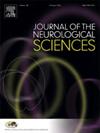氧化应激和炎症反应在脑梗死由于高脂血症和降脂,抗炎和抗氧化治疗
IF 3.2
3区 医学
Q1 CLINICAL NEUROLOGY
引用次数: 0
摘要
高脂血症被广泛认为是脑梗死的独立危险因素。研究表明,高脂血症通过多种机制导致脑梗死,如氧化应激、炎症反应、血脑屏障(BBB)破坏、脑血流(CBF)调节受损、侧支灌注不足等。大量研究表明,高脂血症主要通过氧化应激和炎症反应促进动脉粥样硬化,从而增加脑梗死的风险。本文对高脂血症诱发脑梗死的机制进行了全面的综述,特别强调了氧化应激和炎症反应的作用。此外,针对这些病因的治疗策略,包括降脂、抗炎和抗氧化干预,已被总结为脑梗死的治疗和患者预后的改善。本文章由计算机程序翻译,如有差异,请以英文原文为准。
Oxidative stress and inflammatory response in cerebral infarction due to hyperlipidemia and lipid-lowering, anti-inflammatory, and antioxidant therapy
Hyperlipidemia is widely recognized as an independent risk factor for cerebral infarction. Research has demonstrated that hyperlipidemia contributes to cerebral infarction through multiple mechanisms, such as oxidative stress, inflammatory responses, blood-brain barrier (BBB) disruption, impaired cerebral blood flow (CBF) regulation, and insufficient collateral perfusion. Numerous studies have indicated that hyperlipidemia promotes atherosclerosis, predominantly via oxidative stress and inflammatory responses, thereby elevating the risk of cerebral infarction. This article offers a comprehensive review of recent literature on the mechanisms by which hyperlipidemia induces cerebral infarction, with a particular emphasis on the roles of oxidative stress and inflammatory responses. Additionally, therapeutic strategies targeting these etiologies, including lipid-lowering, anti-inflammatory, and antioxidant interventions, have been summarized for the treatment of cerebral infarction and the improvement of patient outcomes.
求助全文
通过发布文献求助,成功后即可免费获取论文全文。
去求助
来源期刊

Journal of the Neurological Sciences
医学-临床神经学
CiteScore
7.60
自引率
2.30%
发文量
313
审稿时长
22 days
期刊介绍:
The Journal of the Neurological Sciences provides a medium for the prompt publication of original articles in neurology and neuroscience from around the world. JNS places special emphasis on articles that: 1) provide guidance to clinicians around the world (Best Practices, Global Neurology); 2) report cutting-edge science related to neurology (Basic and Translational Sciences); 3) educate readers about relevant and practical clinical outcomes in neurology (Outcomes Research); and 4) summarize or editorialize the current state of the literature (Reviews, Commentaries, and Editorials).
JNS accepts most types of manuscripts for consideration including original research papers, short communications, reviews, book reviews, letters to the Editor, opinions and editorials. Topics considered will be from neurology-related fields that are of interest to practicing physicians around the world. Examples include neuromuscular diseases, demyelination, atrophies, dementia, neoplasms, infections, epilepsies, disturbances of consciousness, stroke and cerebral circulation, growth and development, plasticity and intermediary metabolism.
 求助内容:
求助内容: 应助结果提醒方式:
应助结果提醒方式:


